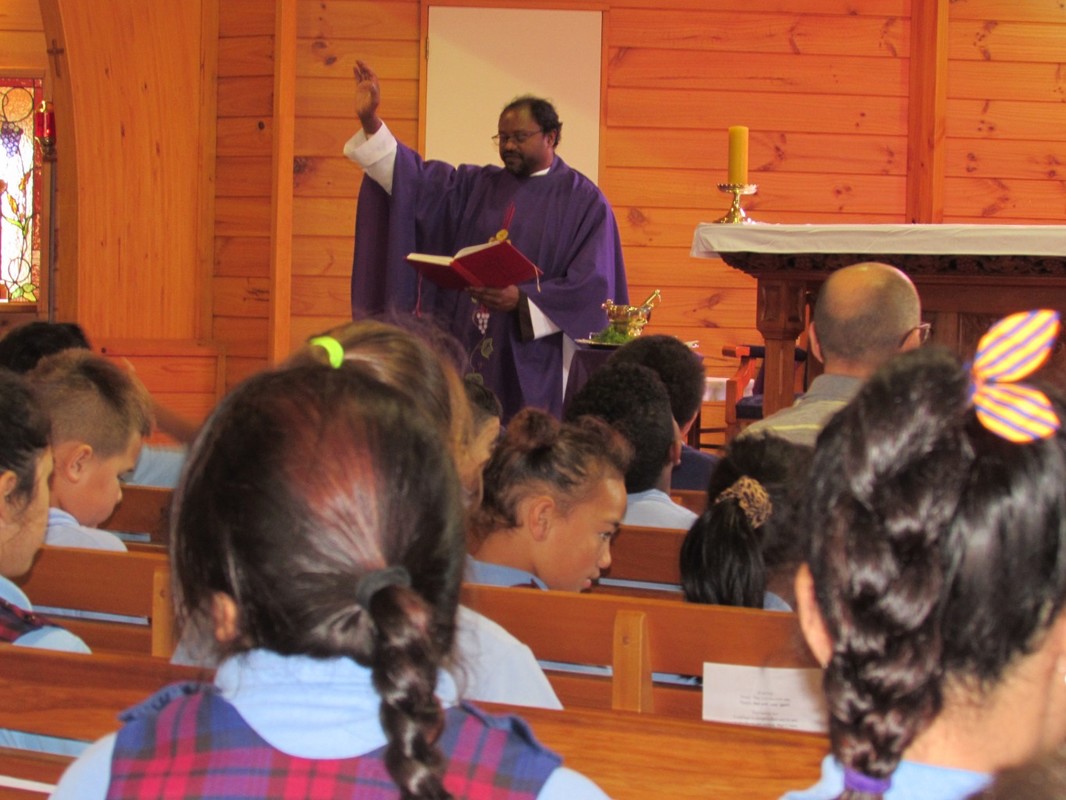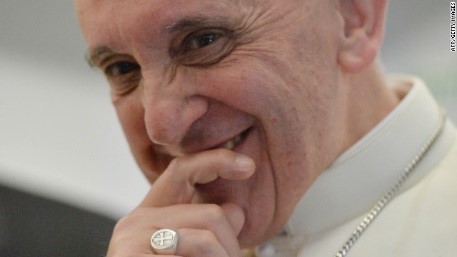|
Lent leads us to Easter By Joan Levy Earle Lent is coming to an end, and as we approach Holy Week and Easter of 2017, let us contemplate the strength of our belief in Jesus Christ, the Son of God. Do we consider Him to be part of a legend, and the star of a nice story of salvation, or do we truly believe that He suffered and died on the Cross on Good Friday? For me, thinking of Him as a legend was the extent of my faith about 40 years ago. I went to church regularly and participated in the service, but my relationship with the Lord was not a personal one. I am a convert to the Roman Catholic tradition. I chose to change my life because of the influence of several people whose paths crossed mine, and who seemed to have a joy in their hearts that I lacked in my life. That was 50 years ago, and shortly after my conversion, I met a wonderful Catholic man who became my husband 9 months later. He was a strong cradle Catholic, but quiet, and he did not talk about God much to me. He just insisted that we not miss Mass, which was an important lesson for me. Later on a retreat, it was Mary, the Mother of Jesus who helped me give birth to a new love for Her Son in my soul. So now, every Good Friday, there is a very real remembrance of Someone who lived, was betrayed, and agreed to suffer and die on that Cross in order that I might have eternal life. Jesus died so that all the sins that I selfishly commit during my life can be erased when I sincerely say I am sorry. Reconciliation is one of the greatest of all gifts we have received. Your confession frees you of the guilt that can darken your soul, and through the mercy of God, you can start over again. If you have been avoiding a visit to the confessional, or having a conversation with your priest to share your faith concerns, give yourself a beautiful present this Easter. Jesus’ mercy and love will then be received into your heart and soul, and you can sing Alleluiah and truly rejoice on Easter morning. Easter blessings from my home… to each of yours! Petra Bouras, is in Year 3 at St Anthony’s School. Along with her class she has been learning about Lent. She shares her research with us What is Lent? Lent is a time of preparation for Easter, (when Jesus rose from his death). After 40 days of lent, it is Easter, the Christian holiday that celebrates the resurrection of Jesus Christ, the Son of God. Lent is a time to remember when Jesus fasted on food and water. Technically, he had nothing. We always need to give thanks for what we’ve got. Lent is also a time to fast something like what Jesus did but only ONE thing not everything. What is almsgiving? Almsgiving is a practice of giving money or food to the poor. Alms is based on money or food given to charity. The word alms is used many times in the King James version bible. The English word alms is based on the Greek word eleemosynary. Next time you’re in St Patrick’s Church you’ll see our “new piano”. Our old one had to be replaced and we were lucky enough to be offered a piano for $2000 by an elderly couple who were moving to a retirement village. Simon Manning, owner of Harbour City Funeral Home, who has helped with various purchases since the new St Patrick’s Church was built, came to our aid again by donating half the amount. We have also had a generous donation of $500.00. If you would like to make a donation towards the remaining cost, please put it in an envelope marked “Piano Donation” and if over $5 your planned giving number, or if you are not on planned giving but would like a donation receipt, put your full name and address in the envelope along with your donation and place in the collection basket. Also if you would like to join the music group by playing the piano for 10am Mass at St Patrick’s once a month contact Ian on 387 7667. Or if you are able to play for 5.30pm Saturday and/or 10am Sunday Masses once a month contact Fr Ephrem. This month, Sister Marcellin came to speak to our St Patrick’s School to tell us about her life as a Mercy Sister. She brought photos from her early days to show us what she looked like when she wore a habit when she was young. After she showed us her photos, she handed them out so we could see them up close. Once she handed them out, she started to tell us about what she did as a Mercy Sister. She told us how long she has been a Mercy Sister and some other information about herself. Then she asked us some questions about some of the Works of Mercy and about the gospel values. She finished up with a speech about how she became a Mercy Sister and some other information. During March Holy Cross School hosted the Parish Sunday Mass. We were delighted to see so many of our families present at this special gathering. Thank you to our DRS Nick Solia for his contribution to the Mass preparations, to the students who took on leadership roles and for the thoughtful prayers our students wrote which helped create a beautiful artwork, reflective of our 2017 focus, Care for Our Common Home. Thank you to our parents who organised food and drinks and showed warm hospitality. What a special gathering. 102 people attended the parish property forums, plus 33 written submissions were received; a wide variety of views were expressed Minutes of the forum are now available on the parish web-site. If you go to: www.holytrinity.parish.nz/property you can read the initial needs assessment, early development of options and subsequent comment from the forum plus a summary of written submissions. The property committee is now developing its recommendations to the parish. Sunday Gospels for April - miracles Sunday 2nd April (John 11:1-5) Martha and Mary wept the loss of their brother. Martha had utter faith in Jesus when he arrived seemingly too late. She had the faith that where Jesus is good things happen. She asked Jesus to do something impossible and he did. Her faith asked, his divinity acted; together they brought Lazarus back to life. With our faith in partnership with Jesus’ divinity we too can be partners in bringing unexpected good. Sunday 9th April (Matthew 26:14-27:66) While eating with his disciples, Jesus took bread, and when he had given thanks, he broke it and gave it to his disciples, saying, “Take and eat; this is my body”. As they accepted his offering they did not fully appreciate that another great miracle was being performed. Are we open to the signs being given to us? Sunday 16th April (John 20:1-9) Jesus not only performed miracles in life, he was leading up to his greatest miracle. He may have been put to death, supposedly extinguished. He rose from the dead. Life is everlasting. The women went to the tomb and he had gone. The disciples knowing that he was behind great rock rushed to check. The disciples were dumbfounded. They were on the cusp of discovering that the impossible had happened in a way that would change the way in which the world would understand life itself. Sunday 23rd April (John 20:19-31) Having risen from the dead Jesus appeared to the disciples and stood amongst them showing his wounds. It was Him. Never again would we need to fear death. Love conquers all, even death. No matter how stuck you get, there is no finality. Instead, Jesus has shown us that there is everlasting life. Sunday 30th April (Luke 24:13-35) Simple acts of Christianity we make can be misunderstood, even condemned. But, if we want to follow Jesus we must stay faithful to what is good and right. In doing so we need to be ready to take the flack that might come our way. We need to stand firm. In doing so those that torment, face the contrast between what is right and what is wrong, the beginnings of an understanding of faith and worship. Pope Francis’ Lenten Message The parable [in the Gospels] is unsparing in its description of the contradictions associated with the rich man (cf. v. 19). Unlike poor Lazarus, he does not have a name; he is simply called “a rich man”. His opulence was seen in his extravagant and expensive robes. Purple cloth was even more precious than silver and gold, and was thus reserved to divinities (cf. Jer 10:9) and kings (cf. Jg 8:26), while fine linen gave one an almost sacred character. The man was clearly ostentatious about his wealth, and in the habit of displaying it daily: “He feasted sumptuously every day” (v. 19). In him we can catch a dramatic glimpse of the corruption of sin, which progresses in three successive stages: love of money, vanity and pride (cf. Homily, 20 September 2013). The Apostle Paul tells us that “the love of money is the root of all evils” (1 Tim 6:10). It is the main cause of corruption and a source of envy, strife and suspicion. Money can come to dominate us, even to the point of becoming a tyrannical idol (cf. Evangelii Gaudium, 55). Instead of being an instrument at our service for doing good and showing solidarity towards others, money can chain us and the entire world to a selfish logic that leaves no room for love and hinders peace. The parable then shows that the rich man’s greed makes him vain. His personality finds expression in appearances, in showing others what he can do. But his appearance masks an interior emptiness. His life is a prisoner to outward appearances, to the most superficial and fleeting aspects of existence (cf. ibid., 62). The lowest rung of this moral degradation is pride. The rich man dresses like a king and acts like a god, forgetting that he is merely mortal. For those corrupted by love of riches, nothing exists beyond their own ego. Those around them do not come into their line of sight. The result of attachment to money is a sort of blindness. The rich man does not see the poor man who is starving, hurting, lying at his door. Looking at this character, we can understand why the Gospel so bluntly condemns the love of money: “No one can be the slave of two masters: he will either hate the first and love the second, or be attached to the first and despise the second. You cannot be the slave both of God and of money” (Mt 6:24).
0 Comments
Leave a Reply. |
SHARINGIf you have news and views to share please email them to: [email protected] Archives
December 2018
Categories |


 RSS Feed
RSS Feed